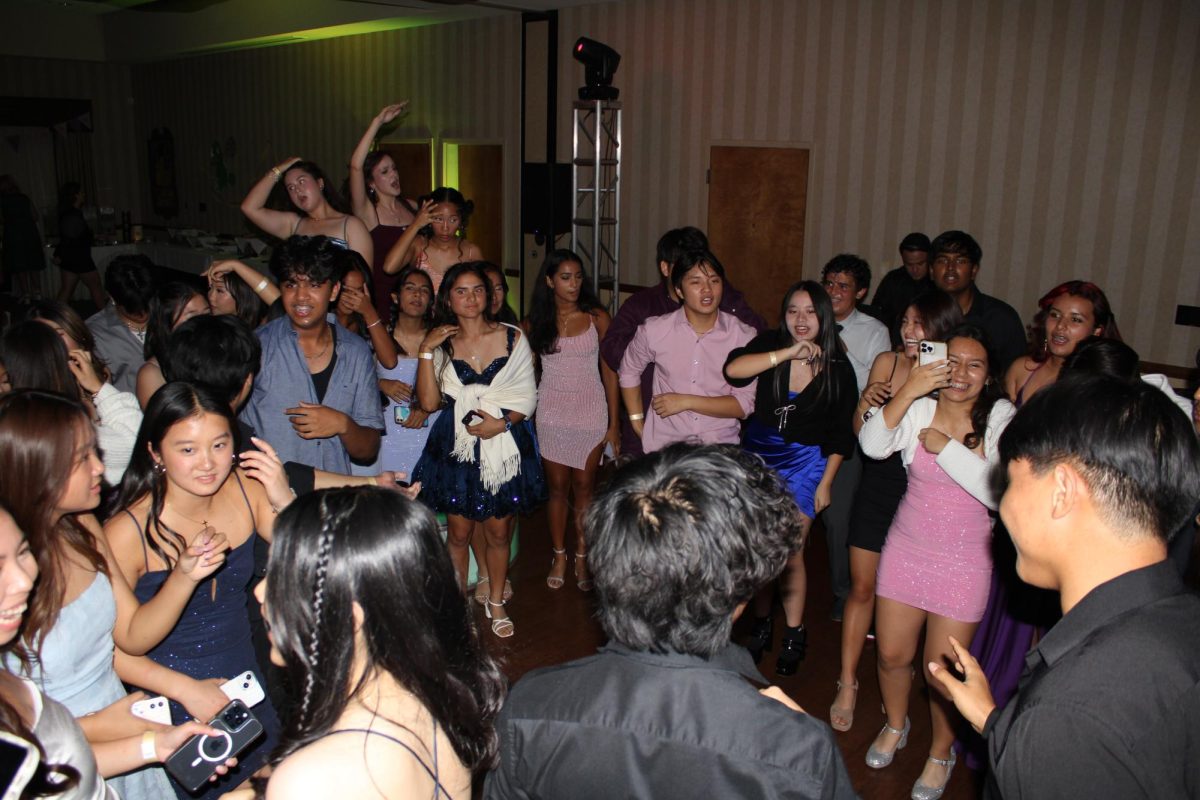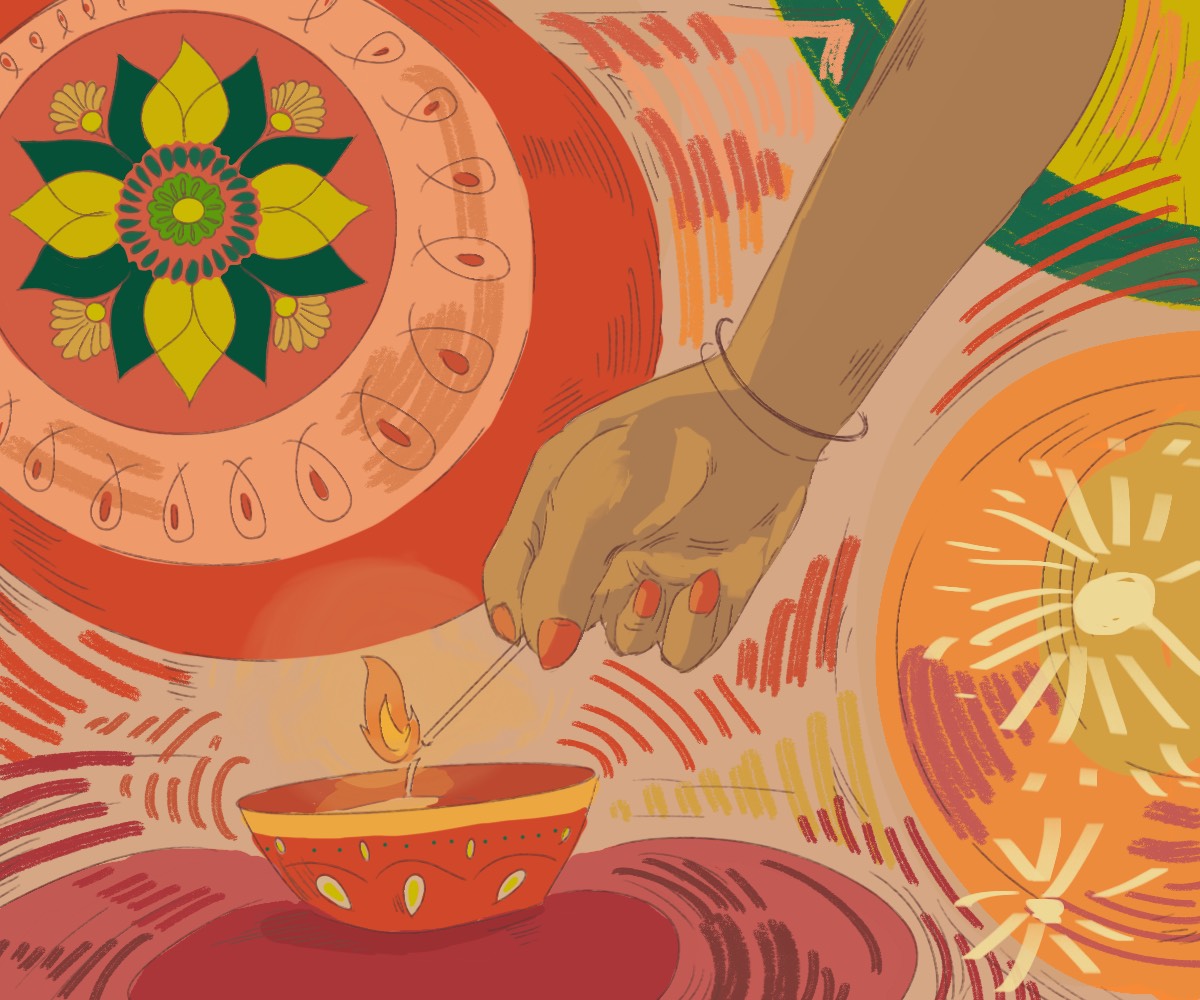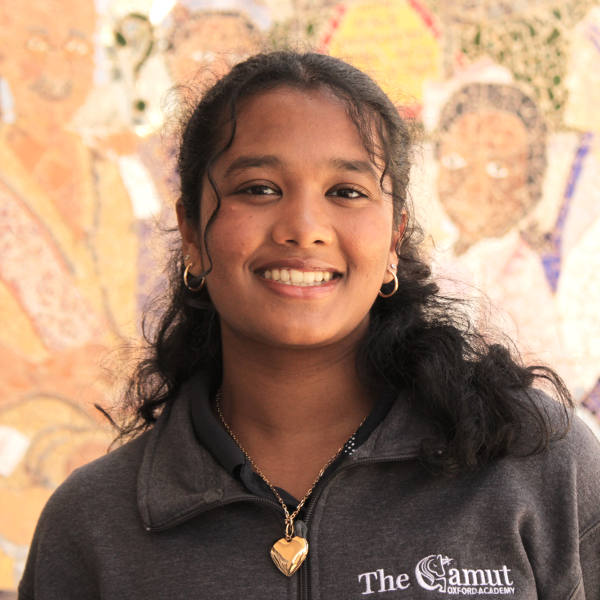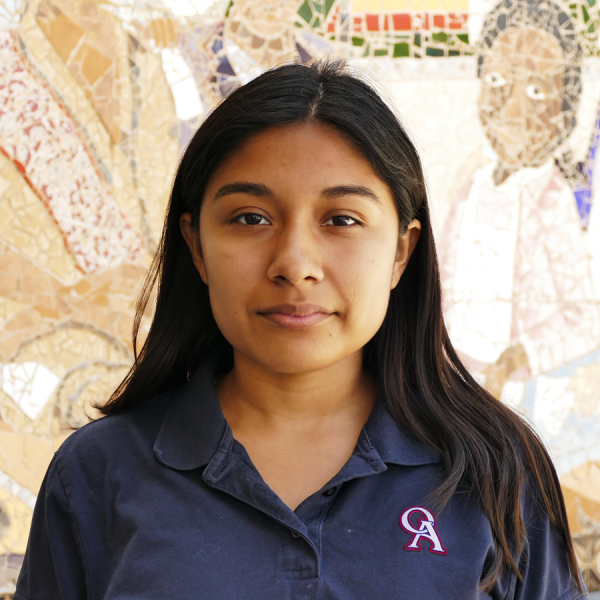Diwali or Deepavali, a predominantly Hindu festival, is one of India’s well-known holidays that celebrates the ultimate triumph of good over evil and light over darkness. Spanning across five days with shifting dates that usually fall between October and November, it is a week where families get together to light firecrackers, attend prayers, and enjoy delicious food.
The festival’s wide audience, consisting of Hindus, Jains, Sikhs, and Newar Buddhists, causes the origin story to be varied across time and states, leading to differing beliefs in the northern and southern regions of India. Northern states derive their mythology from the ancient Hindu epic “The Ramayana.” Along with the “Mahabharata,” this story forms the core of Hindu literature as it narrates the life of Prince Rama of Ayodhya, the eldest son of King Dasharatha. In the case of this retelling, the festival celebrates Prince Rama’s victory over the demon king Ravana, who kidnaps and holds his wife hostage in Sri Lanka.
The southern states of India, however, believe in the myth that Diwali marks the day Lord Krishna defeated the demon Narakasura who plans to take over all the kingdoms of the world. Even though the stories are different, the theme of goodness is common as Lord Krishna and his wife Satyabhama use their wits to defeat the demon. After their clever victory, Krishna declares a day of festivities which is now known as Diwali.
Despite the differences in mythology, Hindus across the world celebrate with loved ones during one of the most treasured holidays of the year. The festival also represents new beginnings since some states of India consider Diwali to be the start of a new year. To honor this, the first day of the celebrations is dedicated to cleanliness to make sure homes are welcoming to the Goddess Lakshmi of prosperity and wealth, whose birthday lands on the holiday. This day is mainly put towards preparing the house for the rest of the week as families adorn their doors with marigold garlands and hang up rainbow string lights.
Families also make traditional Indian sweets to offer to the goddesses like the creamy rasmalai that packs a surprise punch of cardamom and the triangular cashew kaju katli (or barfi).
The days after are filled with bursts of color as everyone dons their finest kurtas (traditional wear) to gather together at a temple or a home mandir (a Hindu or Jain temple) to light diyas (candles) and burn incense to pray for fortune and good luck.
Senior Ganesh Gummadi revisits his memories surrounding Diwali, saying “Every year for Diwali, my family always visits the BAPS Mandir in Chino Hills. The temple looks more magical than ever as they illuminate it with so many colors and have the fountain in front coordinate with the music being played. I think it’s the perfect way to celebrate the festival of lights.”
The emphasis on lights and colors is heavy during Diwali as families believe it is a beacon that attracts the Goddess Lakshmi to your house. A popular tradition that families honor is the drawing of rangolis, an art form that originates in India in which intricate flower designs are created on the floor using different colored flours or rice.
After all preparations are done, temples are filled with people who come to attend large prayer sessions with friends and family. Immediately after, firecrackers spark off the shelves and illuminate up the dark night sky, adding to the festive mood while also representing a way of fending off evil spirits. Some temples even host singing and dance performances and joint firecracker celebrations.
Sophomore Shreya Patel attests to this as she recalls that “Performing a dance with my friends every year at our local temple’s Diwali function is always a highlight.”
Whether or not you have a personal connection to the holiday or if you simply want to enjoy the festivities, OC’s very own “Little India” or in the city of Artesia is filled with bustling Indian restaurants, temples, and clothing stores. Swathed in reflective lights and garlands of flowers, it is open to newcomers and those who miss the taste of home alike.




























































